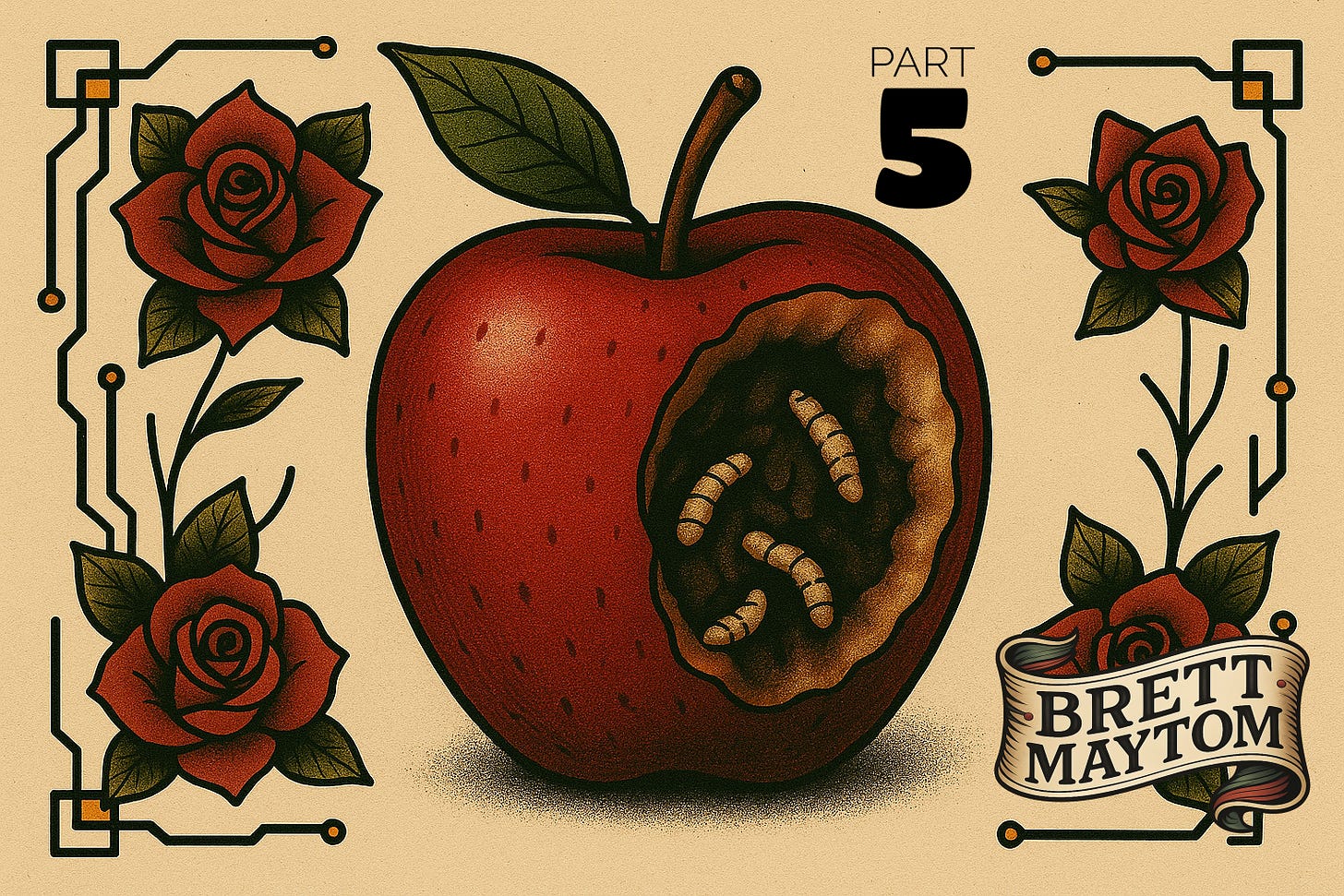Rotten Agile: Part 5 - Certification Scam
How a Two-Day Course with Certification Became a Way to Wreck the Market
The agile certification market is broken—and everyone knows it.
You take a two-day course, sit a multiple-choice quiz that barely tests comprehension, and walk out calling yourself a “Scrum Master.” No real-world application. No experience needed. No professional oversight. Just a certificate and a new title. That’s not mastery. That’s marketing.
This is how we ended up with thousands of underqualified practitioners being handed the responsibility of changing entire organisational operating models. It’s no surprise leaders don’t respect Scrum Masters or agile coaches. They’re seen as amateurs because too often, they are. The market is flooded with people who don’t understand complexity, change, or even how to read a room, yet are expected to influence strategic direction. It’s a farce.
And it gets worse. The good experienced professionals with genuine capability are indistinguishable from the rest. Their credibility is dragged down by a certification model that rewards attendance, not competence. It’s guilt by association.
The root problem? A complete conflict of interest. The same bodies that create the frameworks, creates the courseware, run the training, also issue the certifications, and profit from both. There’s no separation of concerns. The Australian Competition and Consumer Commission (ACCC) and ISO have clear guidelines around certification marks to avoid this exact conflict. That is the certifying body cannot profit from training, consulting their own product. The agile market ignores that as profit comes first.
We’ve built an entire supply chain on low-bar entry: high demand, fast-track certifications, and a constant stream of “certified” professionals entering the market. The result is oversaturation. There are too many coaches, too many “Scrum Masters,” and very few who know what they’re doing.
Worse still, there’s no consistency. Everyone has a certification, but no shared standard. One person’s definition of “agile” contradicts another’s entirely. Take Scrum for example, you have Scrum Alliance, Scrum.org, Scrum Inc and then Scrum Study — they all have their own courses and own certifications. The consumers, business leaders, individuals are left confused, burnt, and rightly skeptical. But this is not just Scrum, it is across the entire agile spectrum and also the technology sector too.
The market is unregulated. There’s no central standards body, no professional licensing, no code, and no agreed criteria for capability. That vacuum allowed the entire system to run unchecked, encouraging profiteering over professionalism.
Individuals who’ve spent years and thousands of dollars building careers in agile now find their value eroded. Not because agile is no longer valid, but because the market has been diluted, oversaturated with low-skill practitioners with inconsistency, and conflict. There are no standards to protect those who do the job well, or the businesses who rely on them. Individuals with “high level” certifications cannot even get an entry level job. Top trainers struggle to get work in jobs they used train people to do. When they get a job, the business ignore don’t trust their experience.
And the mechanism itself is flawed. “Certification” is almost entirely theoretical with just a basic knowledge checks wrapped in a multiple-choice test. No demonstration of competency. No experience required. No validation of whether someone can lead, adapt, influence, or deliver. But they still walk away with a shiny certificate. It’s a pay-to-win model that is exploiting consumers.
Right now the agile marketplace is in infancy and the wild-west where snake-oil salesman are profiteering from selling the potions and tonics. Medicine, Engineering, Accounting, Construction, Law began unregulated, chaotic, or loosely structure before eventually creating formal governing bodies and codes of ethics.
We didn’t raise the bar. We need consumer protection. We need to stop these wild-west behaviour, grow-up and model around professional industries where the member professions are professionals. Where people collaborate to move the industry forward.
Practiqual™ provides an ecosystem designed to change the game. It separates the approach and training from certification, breaking away from the profit-driven model that undermines quality. Certification under Practiqual is fully independent and adheres to ISO and ACCC standards that exist to protect consumers. These standards are set deliberately, with consumer protection at their core. That is to protect you and your customers or employers.
The Practiqual Approach™, built around its Build-Your-Own (BYO) Framework, is community-owned, community-curated and community-maintained. Training is also managed by a community of trainers who own that content and delivery. Certification and assessments are rigorous but fair, demanding real-world application and experience. These assessments are administered independently to ensure integrity of the system.
To further protect the public, legitimate certification marks are backed by strict legal requirements for the assessing body. A professional code of ethics underpins the whole system, encouraging collaboration and mutual respect among practitioners.
Personally, I Brett am tired of the scam as I have been caught out a few times in my career. I am now on a mission to stop this scam behaviour, bring back credibility and legally protect the marketplace so this behaviour ends. Not ideas, I have hired a legal firm to help set this up. The more I have been digging, the more dysfunction I see and am just asking your to open your eyes and see the mess in the agile marketplace (not agility).
Series posts
Read other posts in this series

